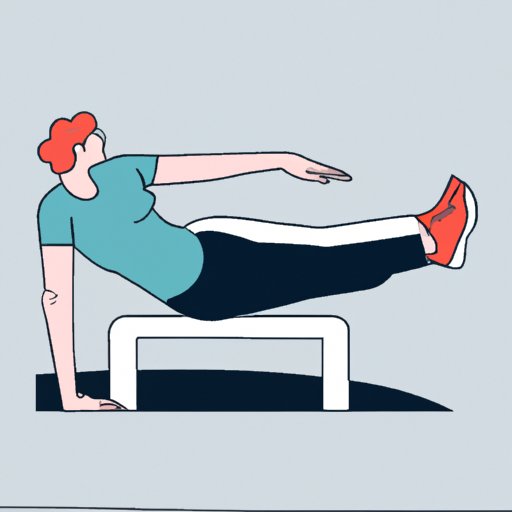Introduction
Exercise is defined as any activity that increases physical activity or exertion. It is a key factor in maintaining physical health and wellbeing. Regular exercise has a range of benefits, from reducing the risk of developing certain illnesses to improving mood and cognitive function. Read on to learn more about the benefits of exercise and how to get started.
Physical Benefits of Exercise
One of the most important benefits of exercise is improved cardiovascular health. Regular physical activity helps to lower blood pressure and reduce cholesterol levels, which reduces the risk of stroke and heart attack. Exercise also increases strength and flexibility. Strength training helps to build muscle and tone the body, while stretching helps to improve range of motion and posture. Additionally, exercise can help with weight loss by burning calories and increasing metabolism.
Mental Benefits of Exercise
In addition to the physical benefits of exercise, it has also been linked to improved mental health. Studies have shown that regular physical activity can help to reduce stress and anxiety, as well as improve mood and overall sense of wellbeing. Exercise can also help to improve cognitive function, which can lead to better concentration and focus.

Personal Stories from Individuals Who Have Benefited from Exercise
There are countless stories of individuals who have made lifestyle changes through exercise and seen positive results. Many people have found that exercise has helped them to lose weight, increase their energy levels, and improve their confidence. Others have shared stories of how exercise has helped them to manage chronic conditions such as diabetes, high blood pressure, and arthritis. These stories serve as an inspiration for others to make changes to their own lives and see the benefits of exercise.
Exercise for Managing Chronic Conditions
Regular physical activity is beneficial for those who have chronic conditions such as diabetes and high blood pressure. Exercise can help to control blood sugar levels and lower blood pressure, which can reduce the risk of stroke, heart attack, and other complications. Exercise can also help to improve overall quality of life for those living with chronic conditions, as it can reduce fatigue, pain, and depression.

Types of Exercise and Best Ways to Get Started
There are many different types of exercise that can be done to achieve different goals. Aerobic exercises such as running, walking, and swimming are great for improving cardiovascular health and burning calories. Strength training and stretching are beneficial for increasing strength and flexibility. When getting started, it is important to find activities that you enjoy and start slowly. Gradually increasing intensity and duration of exercise will help to ensure long-term success.
Conclusion
Exercise is essential for physical and mental health. Regular physical activity can help to reduce the risk of developing certain illnesses, improve mood and cognitive function, and manage chronic conditions. There are many types of exercise that can be done to achieve different goals, and it is important to find activities that you enjoy and start slowly. Exercise can be an incredibly rewarding experience and can lead to improved quality of life.
(Note: Is this article not meeting your expectations? Do you have knowledge or insights to share? Unlock new opportunities and expand your reach by joining our authors team. Click Registration to join us and share your expertise with our readers.)
